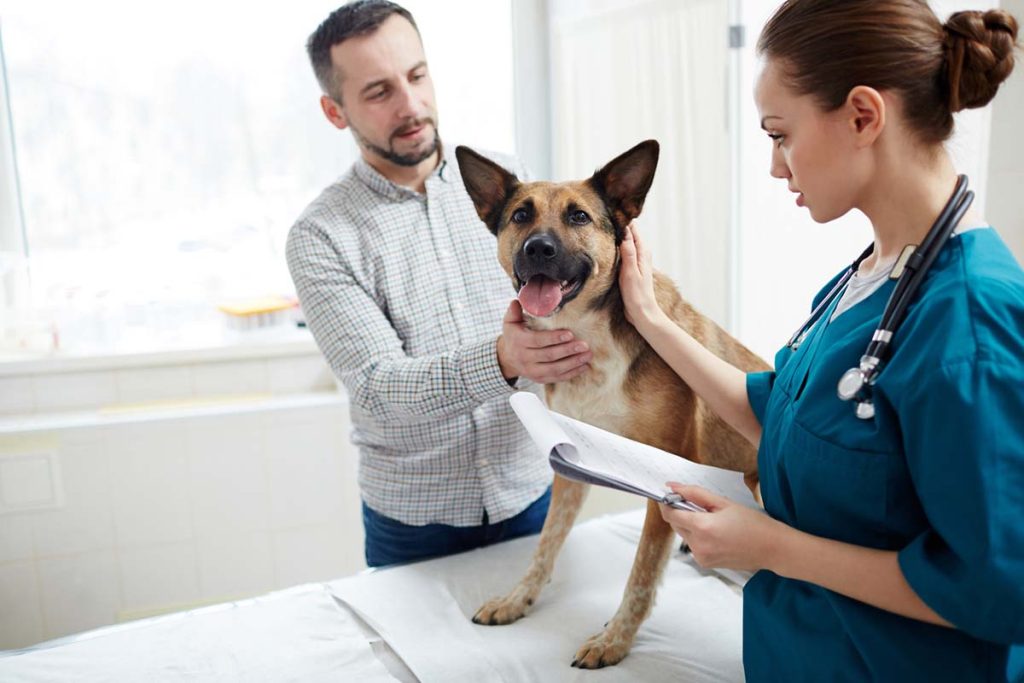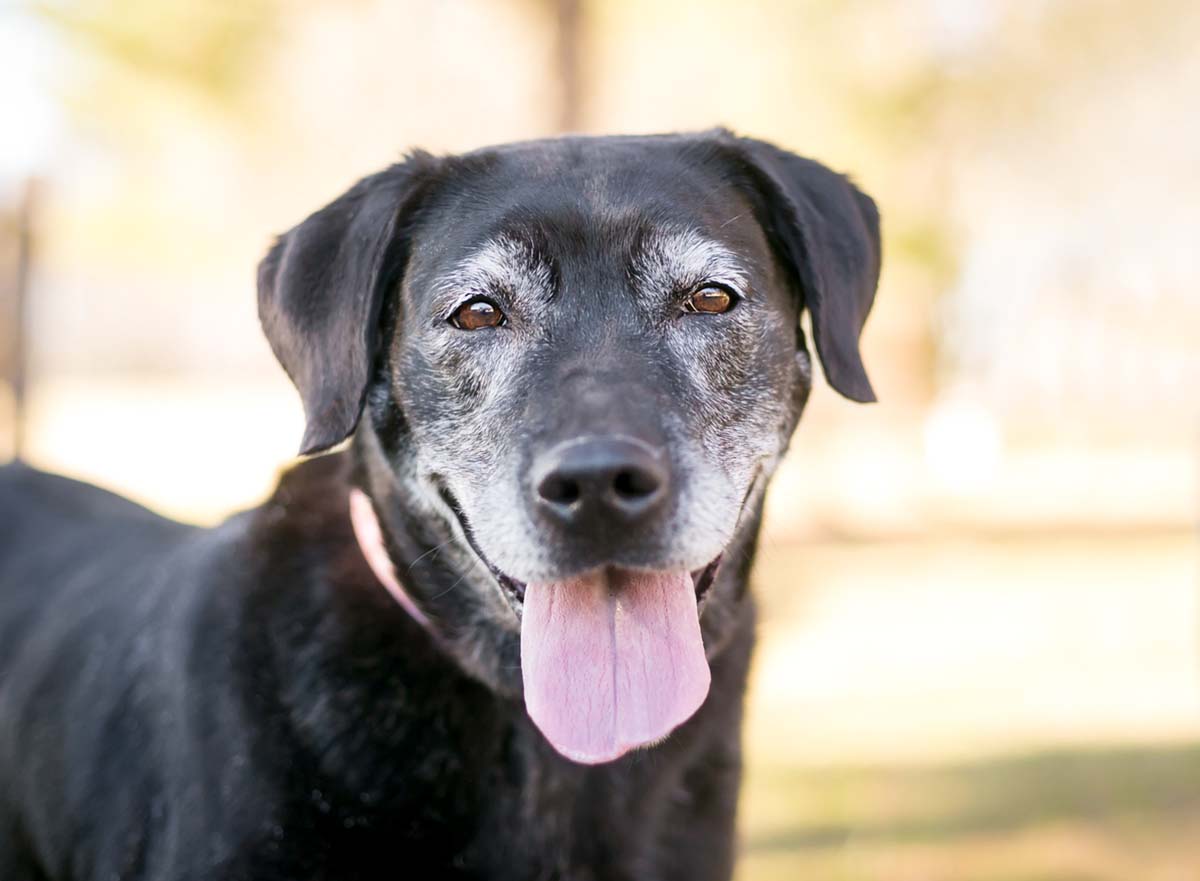As much as we wish they would stay puppies forever, we cannot prevent them from aging. We can, though, take measures to allow them to live as happily as possible during their golden years. Read on to learn what to expect with an aging dog as well as how you can optimize their health as your dog ages.
Signs That Your Dog Is Aging

Outward signs of an aging dog that we tend to see include physical characteristics and behavioral changes like:
- gray hair
- foggy eyes (cataracts) & vision loss
- mobility issues
- weight loss
- exercise intolerance
- bad breath
- incontinence
- hearing loss
However, there are many internal concerns that come with age that we as pet parents may not immediately notice. Or we may attribute them to being a normal sign of senior years, rather than warning signs of something deeper.
Noticing these common health issues for old dogs early may prolong their lives with you, and can allow them to age more comfortably.
Top Concerns In Senior Dogs

Below are some of the top age-related health problems in dogs.
1. Joint Health
While arthritis and joint pain are most common in larger dog breeds, they can affect dogs of any age — even small dogs.
Most dogs are considered seniors around seven years old, depending on breed. Even being considered a “senior” your dog still has a lot of life to live!
If your pet is struggling to jump onto the couch or bed or is having a hard time climbing stairs, these may be signs of degenerative joint issues. You may want to get your pup an orthopedic dog bed to support achy joints and/or a ramp to make getting up stairs easier.
Since joint problems arise with age, there is no cure. However, you can ask your veterinarian if they would suggest a diet change, medication, or supplement to support your pup’s joints.
Nutrition and a balanced diet play a tremendous role in maintaining joint function and overall dog health with the vitamins and minerals in dog food.
2. Cancer
According to the Animal Cancer Foundation, there are around six million cancer diagnoses in dogs every year. If you notice any abnormal bumps or lumps on your pup, don’t hesitate to talk to your vet about them.
While older dogs tend to develop lumps with age, not all are cancerous and can be taken care of — it never hurts to check. Catching these diagnoses early is key! Especially as your dog reaches senior age. Remember to take them in for regular screenings and check-ups.
Here is some good news:
“Pets today have a better chance of being successfully treated for neoplasia and cancer than they did before, thanks to advances in early recognition, diagnosis, and treatment,” says the AVMA.
3. Heart
As expected with age, heart issues can develop. It is important to have any heart concerns checked and/or diagnosed by your vet to find the appropriate regimen. These could include medication, supplements, or new low-sodium, cardiac-friendly diet.
If you notice your dog has a rapid or irregular heartbeat (especially with low-impact exercise), excessive coughing, difficulty breathing, and more, talk to your vet about your dog’s heart to get them on the right track for a heart-healthy life.
4. Kidneys
Kidney failure is quite common in older dogs due to the natural aging process. It is important to schedule consistent appointments with your vet to catch the disease early or keep up with regular treatment.
Kidney disease is not curable, but it can be managed with an appropriate diet consisting of lower protein and phosphorus levels, medication, and supplements as prescribed by your veterinarian. Watch for signs of kidney concerns early on and let your vet know if you notice your pup is experiencing excessive thirst or urination.
5. Gum & Dental Health
Other signs of aging include tooth decay and gum disease. Years and years of tartar and plaque buildup can be a recipe for periodontal disease in a senior dog. The best way to manage teeth health is by daily brushing and routine dental cleanings with your vet.
Why is dental health important in pets? Lack of brushing and care can result in bad breath, tooth decay, and organ damage. Yes, damage to your senior’s organs can stem from tartar buildup, which can travel through the bloodstream and cause things like arthritis, heart disease, and kidney concerns.
Routine cleanings early in your pup’s life and throughout their life can help make sure their senior days are filled with a mouth full of healthy teeth to enjoy yummy treats and food for years to come!

Giving Them the Best Quality of Life Possible
No matter your elderly dog’s needs, aging is a normal part of life. Old age happens to all of us. It’s up to us as pet parents to ensure we take extra care to avoid weight gain, keep our pets up to date on vaccinations, and provide them with the best dog care possible.
*We do require a prescription from your vet for any of our veterinary-directed diets when there is a health concern present. Please reach out to us at (866) 726-9509 if you or your veterinarian have any questions about a diet for your pet. If any of our suggested diets would not be suitable for your particular dog’s life, consider having a custom formulation created!
This content is for informational use only and does not replace professional nutrition and/or medical advice, diagnosis, or treatment. It is not a substitute for and should not be relied upon for specific nutrition and/or medical recommendations. Please talk with your veterinarian about any questions or concerns.
